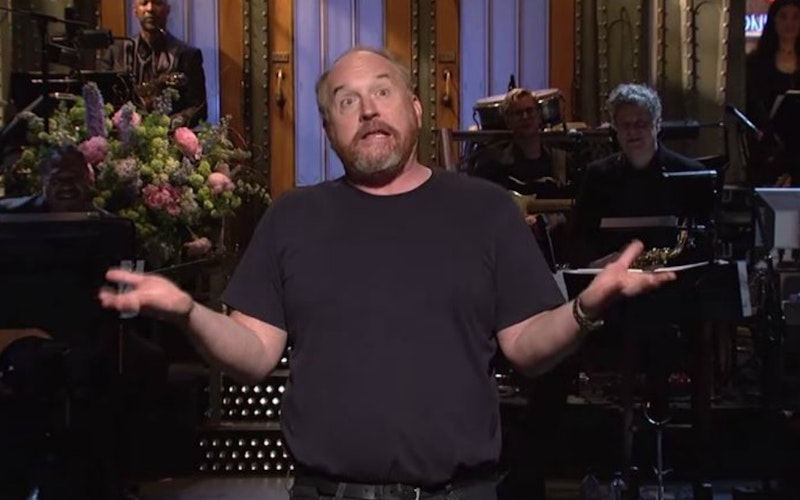
TV
Louis C.K. is not a good person
Louis C.K.’s recent Saturday Night Livemonologue drew fire by surmising that child molestation must be really, really fun - otherwise, why would molesters risk so much to keep doing it? He generally survives the outrage that such jokes evoke by being the first to admit his own moral failings. No one in public life today is quicker to point out that, “Yeah, I’m not a good guy. I am not. I wish I was a good guy. I like the idea of being a good guy. Sometimes I have an opportunity to be a good guy but then I don’t necessarily do it…”
Masturbation. Misogyny. Misanthropy. Louis’ confessions make him sound like another chief of sinners: “I do not do what I want, but I do the very thing I hate.” In one particularly Pauline monologue, Louie imagines giving his first-class plane ticket to a uniformed soldier - but doesn’t actually do it. “And here’s the worst part,” he adds. “I was actually proud of myself for having thought of it.”
Though Louis C.K.’s confessional speech outs him as Not a Good Guy, it also ironically declares his moral awareness. Sometimes, in fact, he’s something of an ethical absolutist, insisting that “you should act that if everybody acted that way things would work out.” Other times he jokes about how everything’s going to fall into the sun eventually. If Louis C.K. confesses belief in anything, he affirms something like a tragic humanism. Which may be why he’s so ready to confess that he’s a jerk.
I suspect that Christians have as little to learn from a comedian’s public confession as they do from a politician’s press conference during political scandal. But we have a lot to learn from another speech-act featured in Louis C.K.’s television show, Louie: the practice of concession. As a fictionalized version of himself - a Manhattan comic, divorced father of two and obsessive ice-cream eater - Louie is forever granting that other people have a point.
If Louis C.K. confesses belief in anything, he affirms something like a tragic humanism.
Take this season’s “Pot Luck” episode, in which a brusque young retailer tells Louie that she just wants him to leave so she can close her chic boutique on time. After arguing for awhile, she asks, in a seeming non sequitur, if he always acts this awkwardly with young people. He admits that, yes, he does. She offers him this explanation: “Because we’re the future, you don’t belong in it. Because we’re beyond you. You have this deep down feeling that you don’t matter.” Louie looks pained, ducks his head and concedes.
What impresses me about concession as a communicative act is that, while it allows others to speak, it does not disaffirm the conceder’s convictions. Louis C.K., as writer, director and star, after all, uses Louie as a mouthpiece for his own brew of tragic humanism. But he does this by allowing other characters to show Louie up. What’s interesting here is that while confession often aggrandizes self, concession rarely does.
I’m thinking of Paul again, when he admits to the impertinent Corinthians that “We are fools for the sake of Christ, but you are wise in Christ. We are weak, but you are strong. You are held in honor, but we in disrepute.” What would Christian engagement be like if we were quick to grant our interlocutors that we are sometimes silly and often feckless? I think that such a practice would require more than a commitment to empathy and liberal dialogue. It just might entail conceding the all-important point that every tongue must eventually confess: that we ourselves are not any more important than anyone else.
Topics: TV, Culture At Large, Arts & Leisure, Entertainment